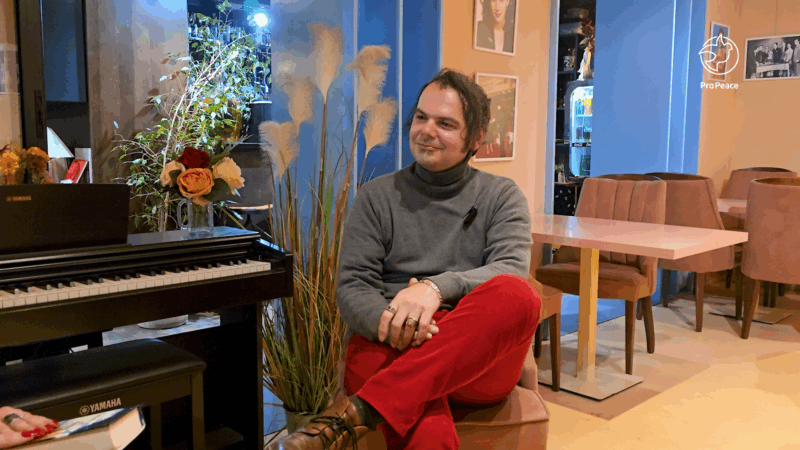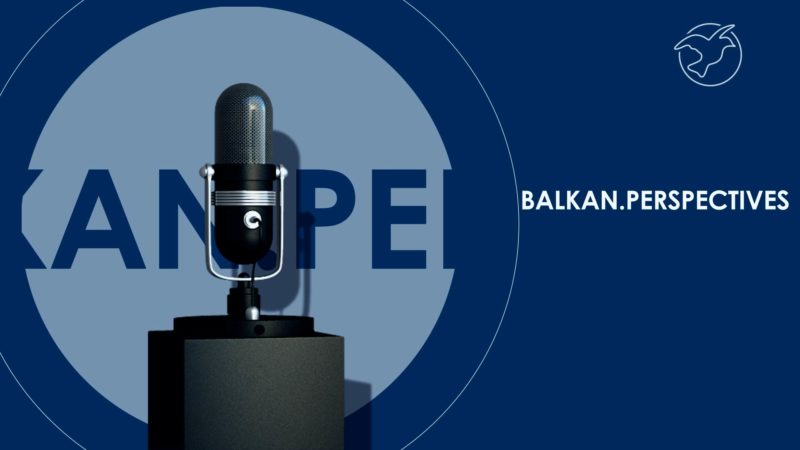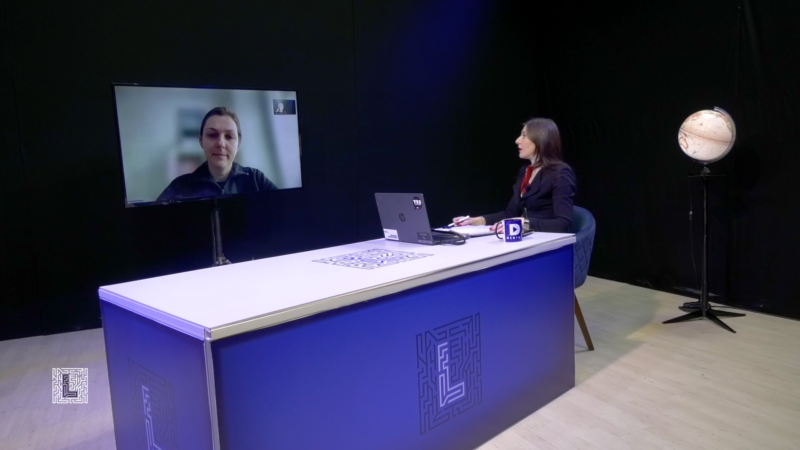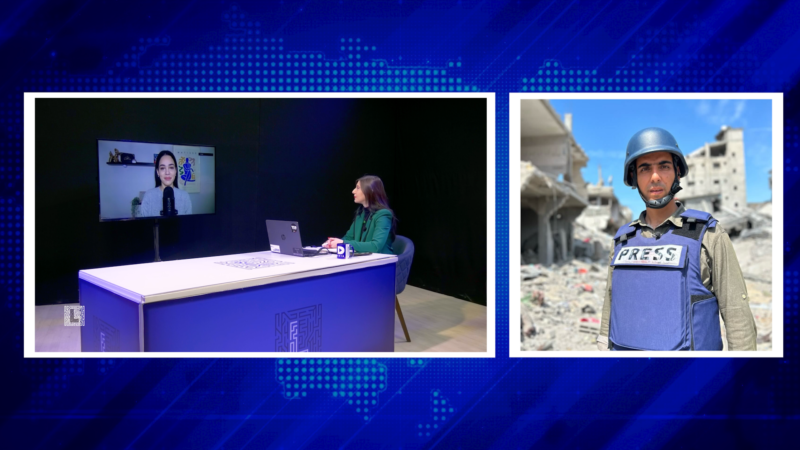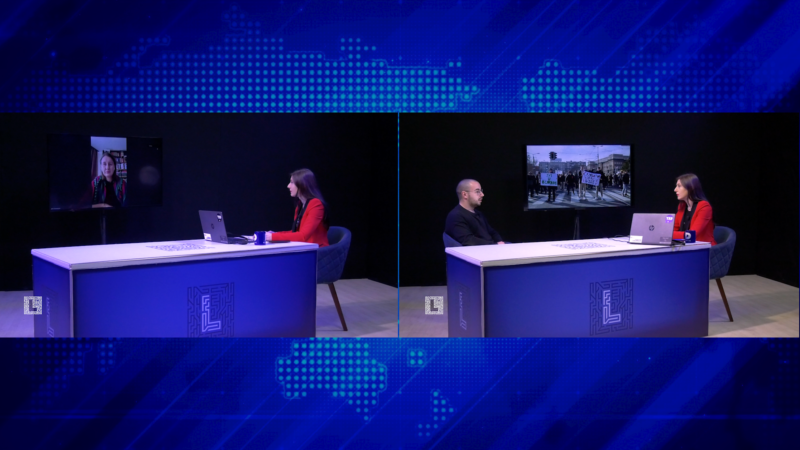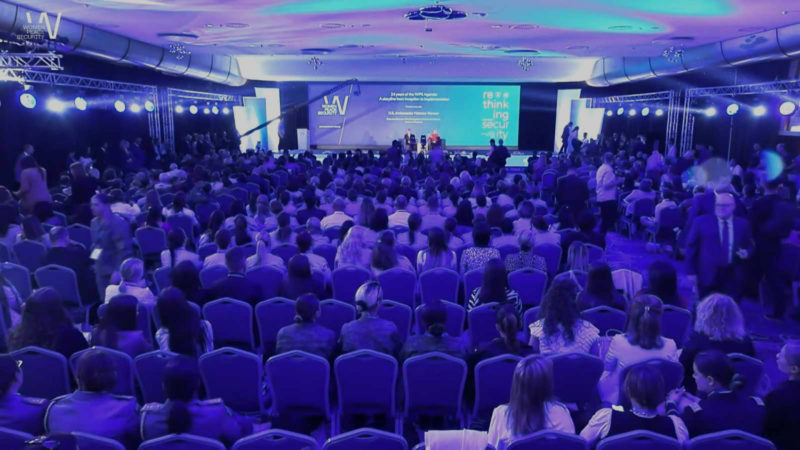peace
The role of the two religions in bringing peace on the Balkans
New episode of the podcast Transitional justice
In this episode we discuss the role of the religions in the post conflict period on the Balkans. How did the religions contribute to making peace and are we living in a harmonized society today? On these topics, Evi Shkopi is talking with the teologist and sociologist Musa Musai about the Islamic point of view, and Kristina Atovska is talking with the Professor and Priest Milan Gjorgjevic about the Orthodox point of view.
Watch the full episode.
Three Years of War – Will Ukraine Give Up Rare Earth Minerals to End the War?
Pressure is Growing for Negotiations
It's been exactly three years since the start of the war in Ukraine. After US President Donald Trump came to power, US support for Ukraine has completely changed and the pressure to start peace talks has increased. We talk to Olena Halushka from Kiev, co-founder of the International Center for Ukrainian Victory, about whether Ukrainians are ready to give up rare minerals and meet Trump's demands, as well as about public opinion in Ukraine about the pressure from the US.
Trump Takes Office – Optimism for Lasting Peace grows in Gaza
Reports from the US and Gaza
Donald Trump officially takes office as President of the US. The inauguration ended with the sensational signing of numerous decisions that have international implications. One of them is the withdrawal from the Paris Climate Agreement. From the US, we include reporter Jallysa Dugrot with an analysis of Trump's inauguration day.
In Gaza, meanwhile, the ceasefire is being celebrated and hopes for a lasting peace are growing. Humanitarian aid has begun to arrive in the strip, and the first hostages have already been exchanged. The second exchange is expected to take place this weekend. Journalist Rakan Abed El Rahman joins us from central Gaza, with whom we discuss the situation there after the long-sought ceasefire.
Women Leaders for the Reconstruction of Ukraine – Students for Justice in Serbia
Report from Kiev and a conversation about Serbian student blockades
Ukrainians will welcome the third New Year with war. The situation on the fronts has little chance of changing without a political solution, but therefore the activities for making plans for the reconstruction of the country in the post-war period are becoming more prominent. From Ukraine, we include Iryna Drobovych, founder of the The Day After Foundation, with whom we discuss the need to plan and inspire the reconstruction of Ukraine in advance.
In Serbia, however, the protests became massive after students from all faculties went on a blockade. They received support from professors, and after them the High School Students' Union also started to block. Our film director Leonid Velkovski, who studies at the Novi Sad Faculty, is also a guest in today's edition of Labyrinth. We discuss the activities and demands of Serbian students.
General Arsoski on the potential consequences of active wars
Analysis with General Arsoski about Macedonian relations with neighbors and global military players
The guest in this edition of Labyrinth is Major General Pavle Arsoski, who in the last elections was also elected as a deputy in the Macedonian Assembly from the ranks of the new political party ZNAM. We discussed the future steps of the Macedonian Government regarding the respect of international agreements, as well as the relations between the coalition partners. The General says that everything is already clear regarding the observance of international agreements, namely that the agreements will be respected where they should, and the Government will make great efforts to improve good neighborly relations.
With General Arsoski, we also discussed the regional open issues, as well as the active military hotspots and the possibility of ending them. General Arsoski reiterated the position that the attacked side has the right to defend itself, and he sees the end of the two active wars in the very near future. For the new Secretary General of NATO, Rutte believes that he is an excellent choice for the Alliance.
Watch the full interview.
Sexual violence in times of war in the focus of the Women Peace Security Forum
Special award for Afghanistan women
Latest news
- THE TESTIMONIES OF THE VICTIMS ARE AN IMPORTANT BASE FOR BUILDING BRIDGES AFTER 2001
- Amnesties and Transitional Justice in North Macedonia – Reconciliation or Evasion?
- Чаир ја враќа урбаната култура со концертот „Shkupi on its Finest“( Скопје во најдобро светло)
- Analyses of conflict zones and experiences from war hotspots
- Democracy should rely on active and organized citizens – says Ambassador Hulman

